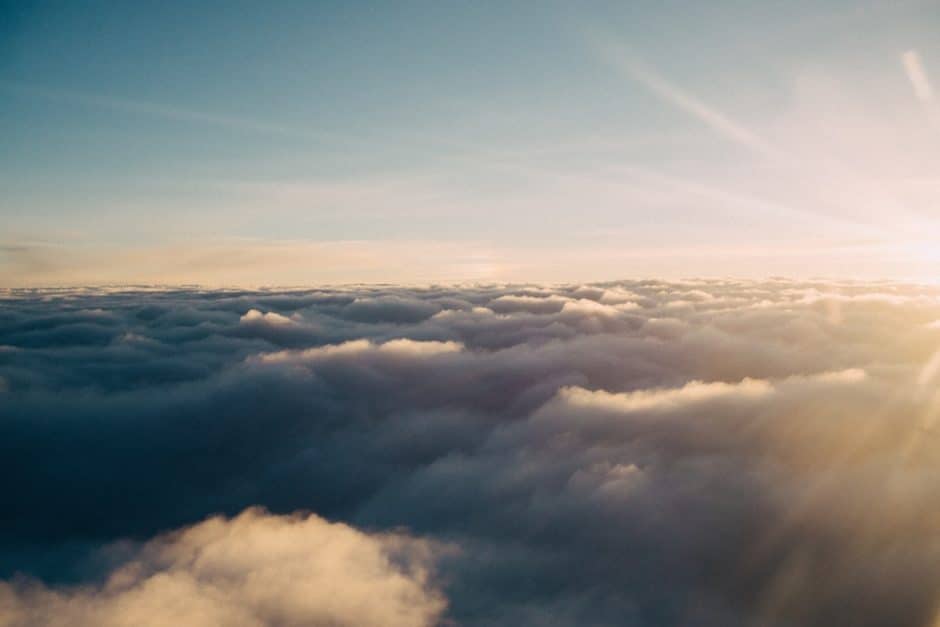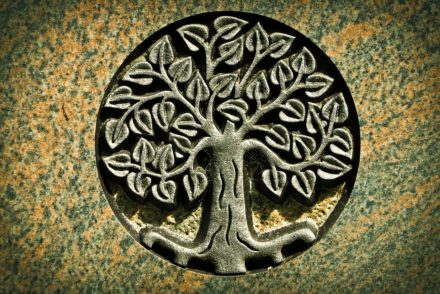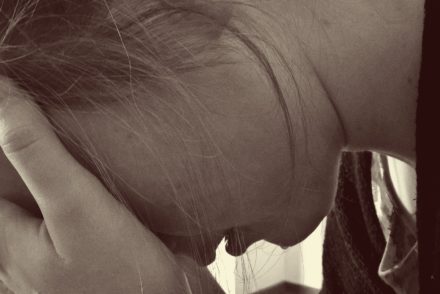By Rene Denfeld
I come from a family of suicides.
My older brother killed himself by eating pain pills and then putting a plastic bag over his head—just in case. My mother followed a few years later, willing herself out of this world. Cousins, siblings, nephews: dead. Even those who survive often bear the marks or memories of trying.
When someone you love kills himself or herself—and when it happens over and over again, as in my family—suicide becomes as ordinary as crossing the street. It becomes your hand on a glass of milk. It becomes you opening the mail, you going for a walk: see that bridge? See that truck? It becomes the freeway ramp you recall your brother made his first attempt to kill himself, driving the wrong way, desperate for collision. It becomes the plate of food you look at and see your mother, denying herself until she literally starved to death, a gasping skeleton clutching your hand in a bed, so devoid of fluids she could not cry.
When the people you love kill themselves, it becomes a common thing, a normal thing, and an everyday you-could-do-it-too thing. It haunts you. It asks, why not you? What gives you the right to survive?
There is no happy ever after in suicide. No consolation. People die and they are gone. They leave you only with the worst kind of loss, frozen in time: never-ending guilt and remorse. You are still here and they will never be again.
But the way they left? It becomes your normal, as easy as following a map: this way out.
My family never believed in heaven. But sometimes I am sure my brother is visiting me. He says, “Rene’s-a-Daisy,” which was his childhood nickname for me. He is so real then I can smell him, though his face floats—as if the afterlife truly has changed him. He has become as soft as clouds. He tells me to find the other side of sorrow.
Families with suicides all have a story. Ours is one of alcoholism, abuse and mental illness. My brother and I survived childhoods marked with poverty and molestation. The man we considered our father is a registered predatory sex offender. My brother tried to escape this history by becoming the king of normal, right on down to the button-down shirt and pocket protector, as if to hide the fact we came from squalor. It didn’t work. Before he died he said, “I just wanted to be a good boy.”
My mother succumbed to guilt, I believe. What a terrible burden she carried. She couldn’t forgive herself, though she had reason—she herself was the victim of rape and violence. Her guilt ate at her from the inside until she could bear it no longer. I wish she were here today, so I could tell her I forgive her.
In ideal circumstances, death is something we try and outrun our entire lives until we have to sink, relatively gracefully, to its pressures. Suicide steals all that, from the living and the dead. It is the hole punched in the picture frame. It is the hole punched in our hearts.
How do you survive? How do you find the other side of sorrow?
I’ve found hope by helping the living. One of the best decisions I’ve ever made was to adopt kids from foster care. My kids bring me joy and redemption and a sense of purpose. Every laugh we share, every touch, is a reminder to me that reality can, indeed, change. The hurt can be soothed, the pain can be seen, and heard. From trauma rises the soul, incandescent and perfect. It was always there, waiting to be embraced.
I also work with men and women facing execution. It might seem that saving the condemned would be a contradiction. But my clients are very similar to my family. No one wants to die. No one chooses to land in this awful place. My clients are in a living nightmare, praying every morning they may awake in a different reality. But every morning they wake in the same cell—just the same as we all do. And we all struggle and go on.
The best way to heal yourself? Heal others.
I don’t believe we can escape our past. My brother and mother tried it, and it didn’t work. We have to make friends with sadness. We have to hold our losses close, and carry them like beloved children. Only when we accept these terrible pains do we realize that the path across is the one that takes us through.
The longer I do this the easier it gets. Isn’t it funny, how we can find beauty anywhere? A fallen feather on the ground. An empty nut husk. A child’s face, even in hurt or anger—sometimes I think active emotion is the most beautiful thing of all, because it signifies energy.
Joy can be found even in despair. The grey cloud lifts, it moves—it is over there tomorrow; today it may come closer. If we slow ourselves we can find magic in even the deepest sorrow.
Sometimes people argue that one pain is more or less worthy than the other. Nothing could be further from the truth. Pain is not a contest. Pain is universal: it is something we all share. And it is something we can heal in each other.
Someday, I hope I can go for a walk and see a bridge and admire only its curve. I want to see the dimple in a bed and not remember a curved form. I want to see my brother living—that I can never do again—but in the least I want to study his picture and remember his warmth, next to mine, that irreplaceable, precious self, and not remember this: the final exit.
I want to think of everything that came before and will come later, and savor it, breath by precious breath.
Rene Denfeld is the author of the award-winning novel THE ENCHANTED, which was the #1 Oregonian Book of the Year, one of Powell’s Top 5 Books of the Year, a finalist for the esteemed Flaherty prize, and winner of a prestigious French Prix award. THE ENCHANTED is coming out in paperback on Feb 22nd. By day she works with men and women facing execution. Rene lives in Portland, Oregon, with her three children.

Jen Pastiloff is the founder of The Manifest-Station. Join her in Tuscany for her annual Manifestation Retreat. Click the Tuscan hills above. No yoga experience required. Only requirement: Just be a human being. Yoga + Writing + Connection. We go deep. Bring an open heart and a sense of humor- that’s it! Summer or Fall 2015. It is LIFE CHANGING!






18 Comments
What utterly fantastic work you are doing, Rene. And this essay — powerful words to encourage others who deal with suicide or other deaths of loved ones. Thank you for posting this piece. Best wishes for continued strength and peace in your journey through sorrow.
Thank you so Petra! I am honored to be heard and seen. Blessing to you….
So honest and moving and powerful, Rene. Thanks for this.
this is…indescribable. So brave, and honest, and beautiful. I’m so sorry for all of your pain-and so blown away by how you’ve found healing. I’m going to post this on my facebook…..
I am a clinical social worker and have borne witness to all manners of suffering. I’ve also been fortunate enough to witness a lot of healing. You are an inspiration.
Eb and Noreen—I am honored. Thank you!!
Your essay touched my heart.
You have moved me by your perspective and view on such a touchy subject.. I also come from a family of suicides too. I want you to know you have helped me today… Thank you so much…. I don’t know you but I wish I could show love for this article you wrote… Every thing happens for a reason. Thank you.
Thank you for sharing this, Rene. My mother is (thankfully) still here, but I knew what suicide and ideation and the rules for the suicide watch rooms were when I was a young young child. It’s such a strange way to be a child – to find the thought of death and the ways to make it happen such a routine part of what passes through your brain. I’ve found a lot of truth in what you said, “The best way to heal yourself? Heal others.” There is nothing that makes me feel more settled and hopeful than to be a safe place for someone else. Learning healthy boundaries to do that was a process, but it’s possible!
Barbara, Ashtin, Nicole: Thank you SO much.
“We have to hold our losses close, and carry them like beloved children.” You’re so right Rene. Your perspective and skill with words are blessings to me!
[…] death-row redemption, soon for this blog, but in the meantime, here is her poignant essay, “The Other Side of Loss,” from my friend Jen Pastiloff’s site, Beauty […]
Thank you….
rene.
thank you for you & for being brave – join us in Chicago at AFSP.com out of the darkness walk on 9/26. Join my team and spend the day of healing and hope with me. No Stigma walks with all who have been through this journey no one wanted to take.
Peace and shine on, Lisa
Reading this was a healing moment for me, and I’m sure for others, GRACIAS. xoxo
Great piece of writing. I see so much of myself in this. Suicidal ideation is like a lovely I carry with me and hold close during the tough days, but I am committed to staying here, staying present. I am showing my children how to be brave and how to find tiny bits of joy in everyday life.
Thanks for sharing this with us.
Very useful information for me
Great informative post.